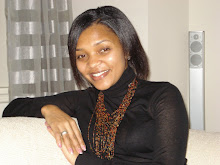
I read a book titled 'Public Relations in South Africa', written by Berendien Lubbe and Gustav Puth. I was actually drawn to it because it’s easy to read and yet very informative!
In this book they talk of two PR levels – the technician and the management level to which PR practitioners should operate. Lubbe and Puth quote Gruning to best illustrate this point, it is stated:
‘Public relations practitioners occupy two major roles, the technician and the manager. Communication technicians provide technical services such as writing, editing, photography, media contacts, or production of publications. Technicians are found in all organizations with public relations departments’.
It continues to say: ‘For excellence to be achieved in public relations and for public relations to fulfill its management function efficiently and effectively, expertise, commitment and vision are required at both these levels. These two levels are also interdependent, the PR manager cannot implement his policies without the technical expertise and support of the public relations technician.’ (Lubbe and Puth, 1994, pg 8)
In this book they talk of two PR levels – the technician and the management level to which PR practitioners should operate. Lubbe and Puth quote Gruning to best illustrate this point, it is stated:
‘Public relations practitioners occupy two major roles, the technician and the manager. Communication technicians provide technical services such as writing, editing, photography, media contacts, or production of publications. Technicians are found in all organizations with public relations departments’.
It continues to say: ‘For excellence to be achieved in public relations and for public relations to fulfill its management function efficiently and effectively, expertise, commitment and vision are required at both these levels. These two levels are also interdependent, the PR manager cannot implement his policies without the technical expertise and support of the public relations technician.’ (Lubbe and Puth, 1994, pg 8)



